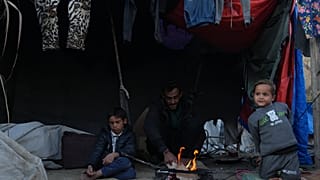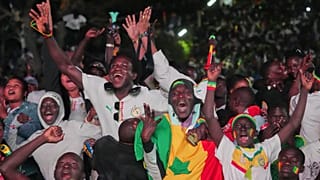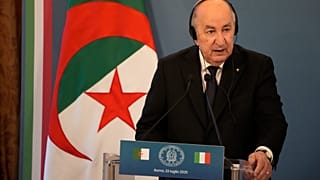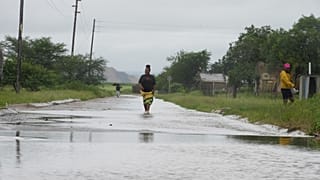Algeria
World Boxing has formally apologised to the Algerian Boxing Federation for naming Olympic gold medalist Imane Khelif when announcing a new genetic sex screening policy.
The mandatory testing is designed to "to determine the eligibility of male and female athletes" and "ensure a competitive level playing field for men and women," World Boxing said.
When announcing the policy, the governing body said Khelif would have to be screened before she can fight at any upcoming events.
Khelif's dominant performance at the Paris Olympics last summer drew international scrutiny about her gender at birth, despite her having been born and raised female.
She was disqualified from the 2023 world championship by the International Boxing Association (IBA), which claimed she had failed unspecified eligibility tests. The IBA has since been barred from the sport for decades of misdeeds and controversy.
The International Olympic Committee ran the past two Olympic boxing tournaments and it applied the sex eligibility rules used in previous Olympics. Khelif was were eligible to compete under those standards.
Khelif intends to return to international competition next month in Eindhoven as part of her plan to defend her gold medal at the Los Angeles Olympics, but some boxers and their federations had already spoken out to protest her inclusion.
Sex eligibility testing
Chromosome testing was common in Olympic sports during the 20th century, but was largely abandoned in the 1990s because of numerous ambiguities that couldn’t be easily resolved by the tests, collectively known as differences in sex development (DSD).
Many sports switched to hormone testing to determine sex eligibility, but those tests require governing bodies to make difficult decisions on the eligibility of women with naturally high testosterone levels. Three months ago, World Athletics — the governing body for track and field — became the first Olympic sport to reintroduce chromosome testing, requiring athletes who compete in the women’s events to submit to the test once in their careers.
World Boxing has been provisionally approved to replace the IBA as the governing body at the Los Angeles Games, but it has faced significant pressure from boxers and their federations to create sex eligibility standards.
World Boxing announced that all athletes over 18 years old in its competitions must undergo a polymerase chain reaction (PCR) genetic test to determine their sex at birth. The PCR test detects chromosomal material through a mouth swab, saliva or blood. If an athlete intending to compete in the women’s categories is determined to have male chromosomal material, “initial screenings will be referred to independent clinical specialists for genetic screening, hormonal profiles, anatomical examination or other valuation of endocrine profiles by medical specialists,” World Boxing wrote.
The policy also includes an appeals process. The boxing body’s decision is the latest development in a tumultuous period in Olympic sex eligibility policy. The issue of transgender participation in sports has become an international flashpoint, with President Donald Trump and other conservative world leaders repeatedly weighing in.
Testosterone testing
Earlier this year, World Athletics also proposed recommendations that would apply strict transgender rules to athletes who were born female but had what the organisation describes as naturally occurring testosterone levels in the typical male range. In 2023, World Athletics banned transgender athletes who had transitioned male to female and gone through male puberty. World Athletics president Sebastian Coe said he felt confident that the body’s new rules would withstand legal challenges.
The 26-year-old Khelif had competed in women’s boxing events under the IBA’s auspices without controversy until the 2023 world championships. She had never won a major international competition before her dominant performance in the women’s welterweight division in Paris.





![Senegal stun Morocco in AFCON 2025 final to retain continental crown [Football Now]](https://images.euronews.com/articles/stories/09/61/76/30/320x180_cmsv2_64f668d8-9f3a-50c3-9477-243de96f35d5-9617630.jpg)






02:12
Legendary boxer Muhammad Ali to be honoured with US postage stamp
00:55
Anthony Joshua released from Lagos hospital after road crash
Go to video
Relatives of boxer Anthony Joshua express shock at car crash that killed two
Go to video
London gyms mourn loss of co-founder killed in Anthony Joshua crash
00:42
Anthony Joshua hospitalised after fatal car crash in Nigeria
Go to video
Anthony Joshua involved in Nigeria road crash that kills two